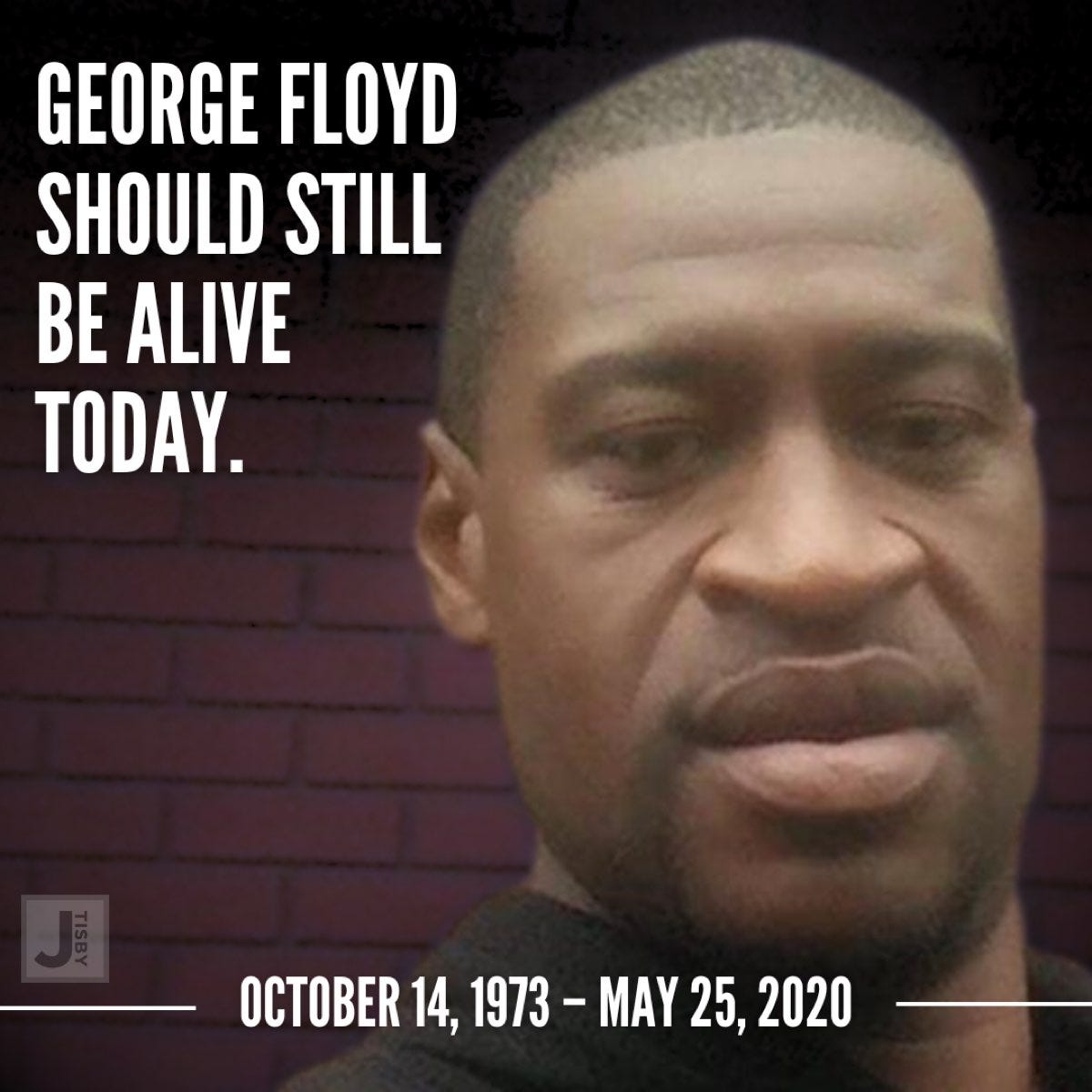We Remember George Floyd, and We Refuse to Quit
Three years after his murder, what has changed and how do we keep going?
The cost of these articles on an emotional and spiritual level cannot be quantified. Honestly, it’s draining, but I think it’s necessary. Your support makes this possible.
George Floyd should still be alive.
He should be cheering for his favorite team in the NBA playoffs. He should be dreaming about how to spend the scant summer months in Minneapolis. He should be eating, laughing, and conversing with his family.
But on May 25, 2020, George Floyd was murdered, and we were all witnesses.
As we socially distanced from each other, we recoiled in collective horror at the video of Floyd being slowly asphyxiated while begging for breath.
A white man in blue, charged to serve and protect, was yet again the cause of Black death.
Protests and More
In the aftermath we marched, prayed, and protested.
Some changes came. I will never not be grateful that the racist Rebel state flag of Mississippi finally came down after casting a shadow of white supremacy over the state for 126 years.
Books about race became bestsellers as people scrambled to inform themselves about racism.
City leaders promised police reform with vows to address anti-Black police brutality and corruption in the field.
Companies pledged billions—billions—to diversity and equity initiatives.
So much action. So much activity. Then so much of it receded from a mighty stream of justice to a trickle of concern.
Change…?
January 6, 2021 came as the public re-introduction of white Christian nationalism. The very promise of the peaceful transfer of power vanishing as the next election draws nigh.
Just yesterday, another Republican presidential candidate entered the fray by touting an anti-woke platform—a political ploy designed to stoke fear about the potential changes that people demanded after Floyd’s murder.
Distribution of those billions of dollars has diminished as quickly as it was promised.
So did Floyd’s death make any difference? Did the historic uprisings of 2020 change anything?
The Difference
First, we must recognize that death is not instrumental, it is existential.
George Floyd’s death is not merely a motivational tool for racial justice. His life, and the end of it, concern being, reality, and personhood.
We must mourn for people as people, and resist the temptation to turn them into tools for social engineering.
Yet Floyd’s death, it seems, did make a difference. Not on the scale most of us would like to see, but in ways that cannot be ignored.
His death made a difference to to the woman in the Pacific Northwest who has met with the captain of her local police department to discuss reforms and protecting the most vulnerable among them.
There is the white man in northwest Arkansas who raised $100,000 among his network of white Christians to fund fellowships for two local Black social justice leaders.
There is the Black homeschooling mother of five who took it upon herself to create and distribute materials about racial justice in her overwhelmingly white educational networks.
Cynicism Is Too Costly
Are these efforts “enough”? “Enough” is the wrong framing.
Are these efforts necessary? Absolutely.
The most effective change comes from grassroots organizing and activism over a long period of time.
Racial justice has always worked this way.
From the abolition of slavery, to the demise of Jim Crow, to the current movement to demonstrate that Black Lives Matter—progress only occurs when a small, committed group of people make up their minds to pursue justice and never quit.
Today we remember George Floyd. We remember him and we refuse to quit.
Cynicism is too costly a price for a people who are not yet free. Despair is too great a debt for those who still long for justice.
Hope is the downpayment for better days ahead.




